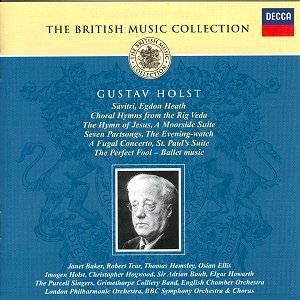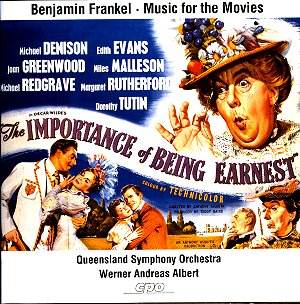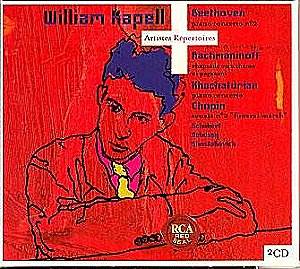 Composer: Sir William Walton
Composer: Sir William Walton
Works: The Quest, Siesta, The Wise Virgins
Performers: English Northern Philharmonia, David Lloyd-Jones, Alison Crum (viola da gamba)
Recording: 11-12 July 2001, The Great Hall, University of Leeds
Label: NAXOS 8.555868
Sir William Walton’s contributions to 20th-century music are often eclipsed by his more widely recognized works, yet this Naxos release offers a compelling exploration of his lesser-known compositions. Central to this recording is “The Quest,” a ballet conceived during the Second World War, which has historically remained in the shadows compared to Walton’s film music for “Henry V.” This performance, utilizing Walton’s original orchestration, sheds new light on a score rich with allegorical depth, inspired by Edmund Spenser’s “The Faerie Queene.” The music is poised to both uplift and challenge, reflecting the dual spirit of its era.
The overture of “The Quest” sets an immediate tone with its striking harmonic language, marked by a vibrant juxtaposition of tension and release. David Lloyd-Jones conducts with a palpable sense of engagement, allowing the English Northern Philharmonia to navigate Walton’s intricate textures with clarity and vigor. The opening phrases possess an exhilarating astringency that captures the listener’s attention, although the recording’s spatial constraints occasionally yield a boxy quality in the climactic moments. Nevertheless, the intensity of the orchestral playing compensates for these shortcomings, suggesting that this performance is not merely a historical document but a living interpretation.
“Siesta,” Walton’s early work from 1926, provides a contrasting palette. The piece, imbued with the composer’s affection for southern Italy, is characterized by a deceptive tranquility. Here, Walton’s rhythmic vitality—echoing Stravinsky’s influence—comes to the forefront. The performance of “Siesta” is marked by an adept handling of dynamic shifts, evoking the restless spirit of its titular theme. However, the execution sometimes flirts with the chaotic, as abrupt transitions can disrupt the flow. This interplay between serenity and upheaval is effectively rendered, yet one wonders if a more nuanced approach to phrasing could enhance the piece’s lyrical moments.
In “The Wise Virgins,” Walton draws from Bachian sources to craft a score that simultaneously pays homage to the past while affirmatively asserting his own voice. The orchestration is masterfully conceived, utilizing a small ensemble that allows for a transparent yet rich sonic tapestry. While Lloyd-Jones maintains a well-paced interpretation, the phrasing occasionally lacks the incisive articulation that Walton’s clever counterpoint demands. This may partly stem from the recording’s acoustic environment, which tends to soften the impact of the music’s more vigorous passages.
The engineering quality of this recording is commendable but not without flaws. The clarity of individual lines is often overshadowed by a muted overall balance, which detracts from the thrilling interplay inherent in Walton’s orchestration. Comparatively, other recordings of “The Quest” or “The Wise Virgins” may present a more robust sonic picture, enhancing the dramatic arcs within Walton’s music.
This compilation stands as a useful addition to the Walton discography, providing valuable insights into the composer’s oeuvre that extend beyond his more renowned compositions. While the performance and interpretation reveal much of Walton’s ingenuity, the recording’s limitations prevent it from achieving the status of definitive. Yet for those willing to delve deeper into the lesser-known corners of Walton’s artistry, this Naxos release offers a rich and rewarding experience, affirming the composer’s place as one of the significant figures in 20th-century music.



